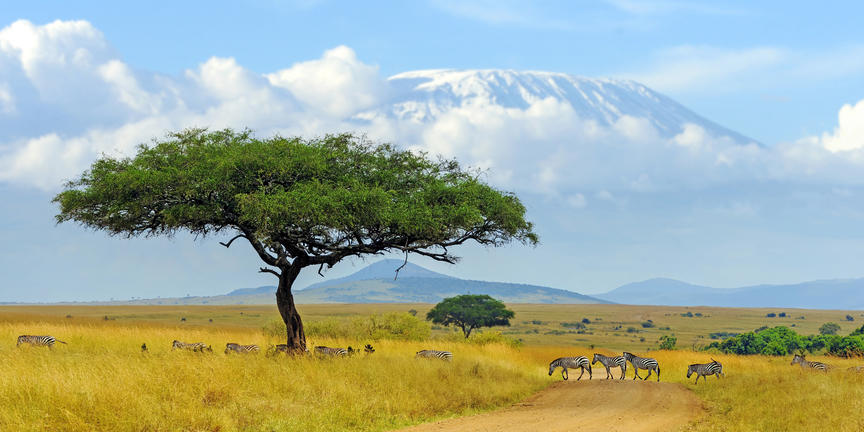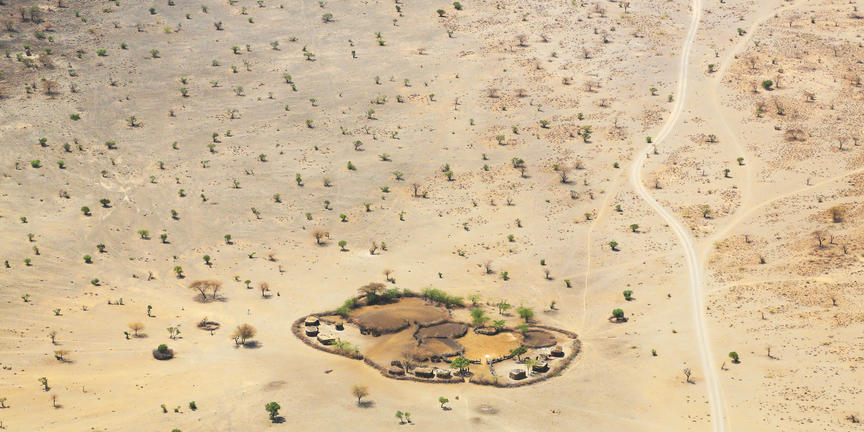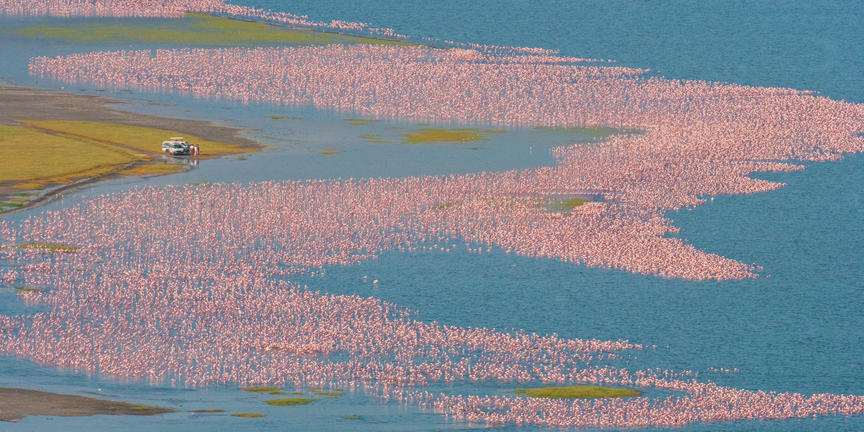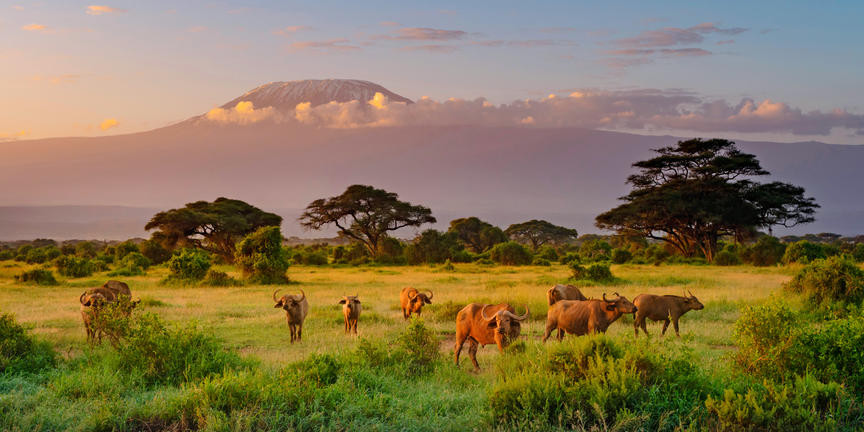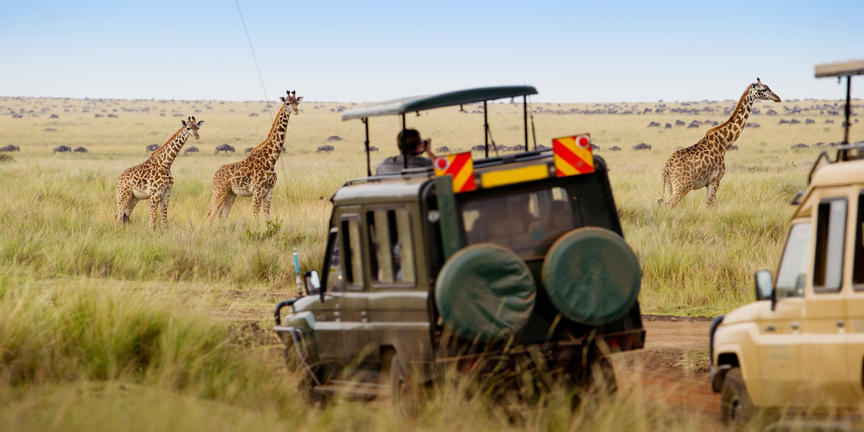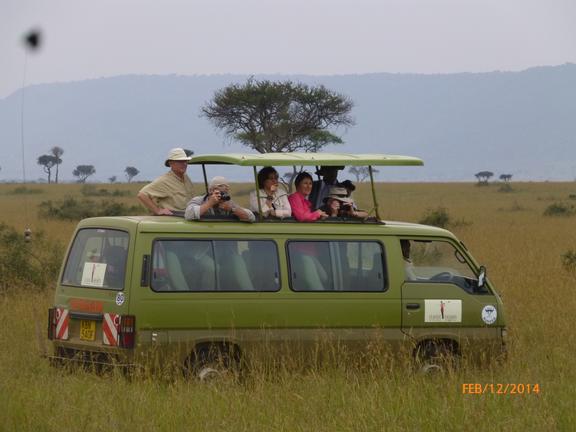- Info
- More Info
- Images
Resting in the magnificent Great Rift Valley and presided over by the majestic Mount Kilimanjaro, Kenya is characterised by hauntingly beautiful natural landscapes of forested hills, patchwork farms, wooded savanna and vast forests brimming with an extraordinary abundance of wildlife. The nation’s diverse range of traditional African cultures is influenced by over 70 unique ethnic groups from the Maasai, Samburu, Kikuyu, and Turkana tribes to the Arabs and Indians that settled on the coast. Add to this: an exquisite tropical coastline fringed with breathtaking golden sand beaches; gorgeous coral gardens providing excellent snorkeling and diving opportunities; and a slew of lively beach resorts, and it is easy to see why so many visitors flock here from around the world to experience a truly unique African adventure in one of the world’s most pristine safari destinations.
IT IS CONVENIENT TO TRAVEL LIGHT:
The safari vehicles do not have a lot of luggage capacity and for this reason, we recommend soft, light luggage. In any hotel with a stay of 2 days or more, laundry service is available.
WE RECOMMEND YOU CARRY:
Binoculars (INDISPENSABLE).
Many more rolls of film than what you thought enough! up to 100 Photos per day during the safari. (It
doesn’t weigh much, and could be slightly more expensive here).
A torch.
Insect repellant.
Lip balms and sun creams.
Coloured biro pens, pencils, pictures, small books, balloons, etc. to give out as presents in case you visit a local village (they are more appropriate than sweets, and are more appreciated).
Disposable lighters, caps, scarves, T-shirts, etc. as “barter material” in souvenir shops (although in actuality, no “barter” without some money changing hands, exists!).
Waist pouches for carrying money, passports and small valuables are very practical.
DON’T CARRY:
Your gold Communion medal, diamonds, Grandmother’s pearls, gold watches, $200 sunglasses, etc.
In other words, carry things that will not be sorely missed in case of loss.
TIPPING:
Most people, when visiting a foreign country, like to be given some guideline regarding tipping. Yet, this is truly voluntary and extremely personal matter. A tip is an indication of appreciation on the part of the guest for the services given and IS ONLY GIVEN WHEN THE SERVICE WAS UP TO YOUR EXPECTATIONS, and is paid after all the services have been completed, and is NEVER OBLIGATORY. A guideline for each traveler follows below:-
Restaurants: These guidelines are for lunches and dinners you may enjoy on your own, which are not included in your itinerary. If the menu says 10% service charge included, you do not need to tip. Otherwise, between 5 and 10 % of the total bill is considered usual and customary.
Hotels’ Camps’ & Lodges’ staff: 2 – 5 dollars per person per day.
Safari driver and Guide: Ever since the early days of safari-ing, driver-guide and naturalist/tour guide in Africa have had their expert bush skills acknowledged in form of tips. We recommend 5 – 10 dollars per person per day, but this is entirely at your own discretion.
Arrival Transfer: 5 dollars per person per day.
COMMUNICATIONS:
Communication is as sophisticated here as it is in Europe or the States, but it is however more expensive. It is possible to make international calls from most of the hotels, but the price is between USD 7- 10 per minute, for a minimum of 3 minutes. It is mostly automatically billed.
The Nairobi hotels, mainly, will also offer email services.
However in the era of smart phones and what's app, as long you can internet - which is now available in most camps and lodges, communication is cheap and easy.
Mobile Phones: The mobile network coverage in Kenya is no longer limited. Right now there is network almost in all the safari circuit areas. Just incase your cell phone provider has roaming contract with some of the few providers in Kenya (Which is mostly the case); most of the places have network coverage including in the parks and all the cities.
SHOPPING:
Numerous shops and stalls selling a variety of souvenirs can be found in the towns and en route during the safaris. You can buy both traditional and modern jewellery, wood carvings, sculptures, soapstone figures, baskets and bags, safari attire, articles made from banana fibre, khangas and kikois
(khangas are the colourful wraps worn by women especially at the coast and in the countryside, while kikois are the wraps worn by men at the coast), precious stones like Tanzanite (violet/blue), semi precious stones such as green Tsavorite, Tiger Eye and Malachite etc
It is important to bargain in most of the shops for a better price.
We also have some small “markets” such as the Maasai Market in Nairobi, where you can not only enjoy the hectic atmosphere but also find all types of arts and cratfs for sale. This market is open air, operating at shopping malls on each day of the week (please ask your guide for a recommendation while in Nairobi).
Most hotels also have gift shops that sell souvenirs, T-shirts etc
In case you happen to purchase items of African craft while on safari and you decide you want the purchased items to be send to your home country, please make sure you clarify and confirm that the entire shipping costs are included in your invoice just to avoid any inconveniences upon delivery. Mostly, the shipping charges are normally done at the destination airport so as to be able to go through customs inspections and formalities. Kindly note that we take our clients to shopping areas that are highly recommendable for shopping, however Classic Safaris will not be held responsible for any damages caused during the shipping period of the said items. At the same time, the company shall not be held responsible for the non-sending of the purchased items to the agreed destination and will not accept any responsibility for shipment or customs charges.
SHOPPING HOURS:
Shopping hours are from 0830hrs to 1230hrs and 1400hrs to 1700hrs. Mondays to Fridays and from 0830hrs to 1300hrs on Saturdays. The bigger supermarkets do not shut over lunchtime, and stay open until 2000hrs during the week and 1800hrs on weekends. There some supermarkets in Nairobi those are now open 24 hours.
WILDLIFE, NATIONAL PARKS:
Please refrain from disturbing or feeding the animals in the parks. It is dangerous to try to touch them- they ARE wild. Please stay in the vehicle during game drives in the park.
It is prohibited to sit on top of the vehicles, even while they are stationary.
REGISTRATION AND HOTEL CHECK OUTS:
On arrival, you will fill in a registration card at the reception in order to obtain the room key. Room occupancy is only guaranteed after 1100hrs, and on check out must be done by 1000hrs or 1800hrs, if you have contracted a day room.
Extras bills will be paid at the reception. When this is cleared and the room key has been handed in, you will receive a luggage ticket which allows your luggage to leave the hotel, as it indicates all bills and outstanding matters have been cleared.
